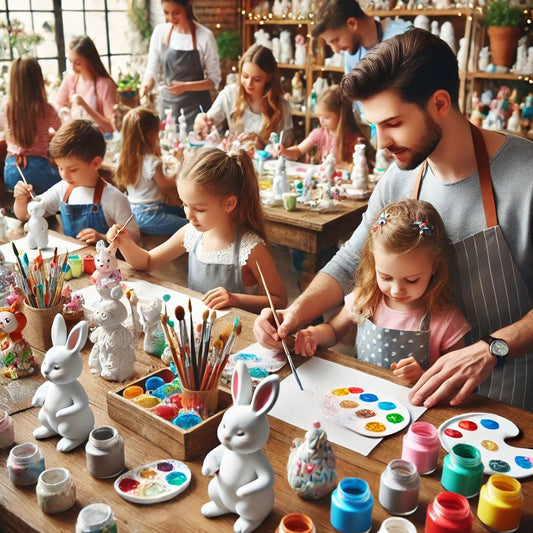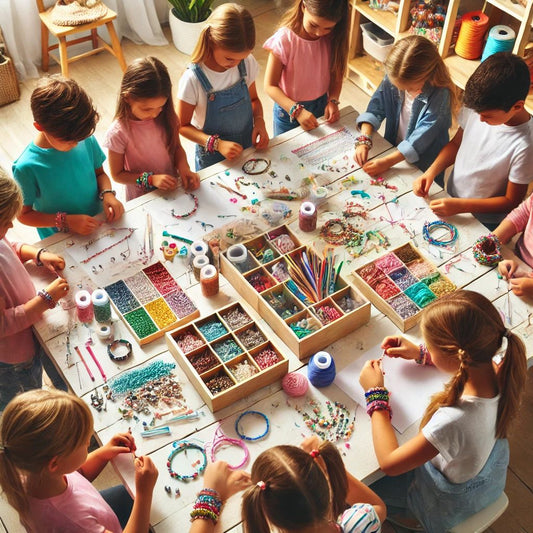
Happy Birthday Greetings in Germany
Share
Happy Birthday Greetings in Germany
How Birthdays Are Celebrated in Germany: Traditions, Etiquette and Gifts
Birthday is a holiday that in many cultures symbolizes joy, personal achievements and care for a loved one. However, each country has its own peculiarities and traditions, and Germany is no exception. Accuracy in dates, special rules for invitations, specific choice of gifts and even superstitions make German celebrations different from those we are used to. That is why it is interesting to find out how Germans congratulate each other on this special day and how their traditions can please or even surprise guests from other countries.
The purpose of this article is to introduce readers to the main traditions and customs associated with celebrating a birthday in Germany. Having learned about the intricacies of German customs and etiquette, you will be able to feel more confident at a celebration among German friends, colleagues or partners. After all, understanding local habits will not only help you avoid awkward situations, but will also make your congratulations more sincere and pleasant for the birthday boy.
2. Historical context and cultural characteristics
Birthdays have been celebrated since ancient times as a significant event associated with a person's transition to a new stage in life. In Germany, this tradition was rooted in customs associated with various religious and secular holidays. It was considered important to protect the birthday boy from evil spirits on his birthday, so special holiday wreaths were installed in houses, and later special holiday pies and cakes were baked, which were called "Geburtstagstorte". Over time, these rituals acquired a more secular character: the religious component faded into the background, and the attention to the person and the joy of celebrating together remained important.
The modern culture of celebrating birthdays in Germany developed gradually. During the Middle Ages, such celebrations were a privilege of the nobility and wealthy citizens. They were given symbolic gifts - from jewelry to art objects. However, as cities developed and prosperity grew, the habit of celebrating a person's birth spread to other strata of the population. It became a tradition to invite relatives and friends, treat them to home-cooked meals or wine. Gift-giving became more practical: people often presented household items or gastronomic delicacies.
The special symbolism of the holiday in Germany lies in family ties and sincere expression of good feelings. This day is considered one of the main personal holidays, because it concentrates respect for the past, pride in the present and hopes for the future. Germans especially value warmth and a personal approach to the birthday boy: it is believed that the right congratulations and a thoughtful gift not only make a person happy, but also strengthen relationships in the family or among friends. It is for this reason that the organization of a birthday is often approached thoroughly, starting planning several weeks in advance: they think through the place, guests, treats and even decor details so that the celebration will be remembered for a long time.
3. Main traditions of the celebration
3.1. Holiday date and accuracy
In Germany, there is a strong belief that congratulating someone on their birthday before the due date is a bad omen. It is believed that such "running ahead" can bring bad luck to the birthday boy. Therefore, even in cases where the celebration is planned for the weekend or another time convenient for everyone, congratulations themselves are usually given only on the official date of birth. Some close friends and relatives may even wait until midnight to congratulate at the very moment when the birthday boy "enters" his new year of life.
3.2. Invitation rules
German culture places great emphasis on planning, so guests are usually invited in advance – weeks or even months before the event. A traditional and very pleasant way is to send paper invitation cards, which indicate the date, place, start time and sometimes the dress code. In the modern world, emails or messengers are increasingly common, which allows for quick feedback.
In any case, if you are invited, you must confirm your presence or, if you are unable to attend, politely and promptly decline. Punctuality plays a key role in Germany: arriving “late” by 10-15 minutes can be considered a disrespectful sign, unless this has been agreed upon in advance.
3.3. Who pays for the holiday
Unlike some other cultures, where guests gather and pay a joint bill at a restaurant or give a large folding gift, in Germany there is a well-established tradition: all expenses for the celebration, including the restaurant bill or the costs of organizing a house party, are borne by the birthday boy himself. It is as if he is “treating” his friends on his day, thus expressing the joy of the holiday. However, guests usually bring individual gifts - be it flowers, small presents or an envelope with money - to make their contribution to the celebration and please the hero of the occasion.
4. Etiquette of congratulations and communication
4.1 How to say "Happy Birthday" in German
The most common phrases in Germany are:
- "Alles Gute zum Geburtstag!" (translated as "All the best on your birthday"),
- "Herzlichen Glückwunsch zum Geburtstag!" (more literally - "Hearty congratulations on your birthday").
You can also hear the variant "Alles Liebe zum Geburtstag!" (something like "All the love on your birthday"), most often used in an informal setting and among close people. The main thing is to say these words sincerely and preferably in person, when meeting the birthday boy.
4.2. The role of hugs and handshakes
- In a business environment or among people who have not known each other for very long, a handshake accompanied by verbal congratulations is more appropriate.
- With friends or close relatives, especially if you see each other often and know each other well, it is customary to hug or kiss on the cheek. However, you should not force a hug if you feel that the person may feel uncomfortable - in Germany, personal boundaries and freedom of choice are respected.
The response to congratulations is usually a sincere smile and “Danke” (“Thank you”).
4.3. Toasts and wishes
In Germany, toasts are not usually drawn out or turned into long monologues. Most often, these are a few kind words addressed to the birthday boy. A toast may include:
- A short mention of the person's positive qualities (e.g., "You always support me and create a great atmosphere in our company").
- Wishes for health, happiness, success in work or studies.
- And, of course, the expression of joy that everyone was able to gather and share this special day.
The main thing is to speak from the heart and avoid overly formal or pompous formulations. If you are not confident in your German, you can give a toast in Russian with a translation into German (or at least with the addition of a few German words) to emphasize your efforts.
Thus, a polite greeting, correct address and a light, warm toast will help you feel comfortable in any company and make the holiday truly cozy and pleasant for the hero of the occasion.
5. Gifts and greeting cards
5.1. What is given most often?
When choosing a gift for a birthday boy in Germany, the main idea is to show attention to his hobbies and tastes. However, there are a number of universal gifts that will always come in handy:
- Books : fiction, travel guides, art books or cookery books.
- Flowers : A fresh bouquet is a classic, especially roses, wildflowers or seasonal arrangements.
- Chocolate : selections of fine chocolates or handcrafted chocolates.
- Wine or beer: Germany is famous for its beer and even local wines, so this gift will appeal to many.
If you know the birthday boy or girl well, you can give a more personalized gift. For example, a person who is into sports can be given a fitness gadget, and someone who loves music can be given a vinyl record or unusual headphones.
5.2. Gift design
Germans value the aesthetic perception of a gift, so pay attention to the packaging. Colorful paper, a beautiful ribbon or a stylish box will add a festive look to your present. It is also customary to give a card in which you write sincere wishes. The card can be laconic or, on the contrary, contain several kind phrases in German - this will show your respect for the birthday boy and his culture.
Typical wording for a postcard:
- “Alles Gute zum Geburtstag!”
- "Herzlichen Glückwunsch und viel Erfolg im neuen Lebensjahr!" (Heartfelt congratulations and great success in the new year of life!)
- "I wish you health, happiness and much joy!" (I wish you health, happiness and much joy!)
5.3. Special gifts for close friends and relatives
If you want to make a truly memorable gift for a loved one, pay attention to less traditional options:
- Tickets to a concert or performance : especially if you know a favorite performer, genre or production that has long interested the birthday boy.
- Cooking master classes: an excellent choice for gourmets who love to learn new recipes and cooking techniques.
- Themed trips : a short weekend trip to a nearby town, a trip to a festival or a tour of local castles - all this will give you vivid impressions.
By thinking through the idea of a gift and presenting it beautifully, you can not only express respect for the person, but also demonstrate that you put your heart into choosing the present. This approach is highly valued in Germany, because it shows your sincere desire to make the birthday truly special.
6. Festive table traditions
6.1 Cake, pastries and pastries
Sweet treats are a must at a German birthday party. Traditionally, there should be a large cake or pie on the table (often birthday people even bring them to the office for their colleagues). One of the most popular options is considered to be " Schwarzwälder Kirschtorte " (Black Forest cherry cake): these are sponge cakes with cherry liqueur, cherries and a large amount of whipped cream, decorated with chocolate chips.
In addition to the classic Black Forest, Germans often serve:
- fruit pies with apples, plums or pears,
- cheesecakes,
- small cakes and muffins (Muffins, Cupcakes),
- homemade baked goods (for the family circle).
6.2. Snacks and drinks
Depending on the format of the celebration, different dishes may be served. If it is a cozy home gathering, the hosts often treat guests to traditional German snacks: buns with sausages or cheese, salads (for example, potato salad - Kartoffelsalat), different types of sausages (Bratwurst, Wiener Würstchen), as well as seasonal dishes reflecting regional characteristics.
When it comes to drinks, beer or wine are the most common drinks in Germany. Strong alcoholic drinks (liqueurs, schnapps) may appear on the table, but they are more likely to complement the meal after the main courses. In recent years, interest in non-alcoholic cocktails and fruit lemonades has grown, so if you don’t drink alcohol, there will always be something interesting for you.
6.3. Format of the holiday
- Home reception: cozy family celebrations where relatives and close friends gather. Here, everything is usually thought out to the smallest detail: from the decor to the menu, which always includes traditional German dishes and pastries.
- Restaurant or cafe : a more formal option, suitable for large groups or for those who do not want to spend time on cooking and cleaning. The birthday boy or girl books a table in advance, agrees on the menu and treats the guests.
- Bar or "Stammtisch" : a popular format for meeting friends or colleagues. A "Stammtisch" in Germany is a "assigned" table (often in a favorite bar or beer hall) where a familiar group gathers. Congratulations can be less formal, the atmosphere relaxed.
Regardless of the chosen format, the main thing for Germans is to create a comfortable environment where each guest will be pleased to be, and the treats will reflect the personal taste of the birthday boy and his vision of the holiday.
7. Interesting and funny customs
7.1. Tradition "Sektfrühstück"
In some German families, there is a tradition of starting the celebration in the morning - this is the so-called "Sektfrühstück" (sparkling wine breakfast). Usually, fresh rolls, jam, cheeses, sausage, fruit and, of course, a glass of sparkling wine ("Sekt") are served at the table. Such a breakfast sets a cheerful, festive mood for the whole day. In some cases, neighbors can join in the "Sektfrühstück" if they have developed a warm, friendly relationship with the birthday boy.
7.2. Bell ringing and city traditions
Some German towns and villages have preserved colorful local customs. For example, if the birthday boy is a respected person or an active participant in the life of the community, then church bells may ring in his honor. Sometimes a flag is hung on the house or special congratulatory inscriptions and wreaths are placed at the gate. Such customs are especially typical for rural areas, where residents communicate closely with each other and like to publicly express respect for their neighbors.
7.3. German Punctuality
Germans are famous for their love of precision in everything, and birthdays are no exception. If the invitation states that the celebration begins at 18:00, then guests try to arrive no later than 17:55. This rule also applies to the end of the party: the organizer can, for example, announce that the party will last until 23:00. Then, as a rule, most guests will have already begun to leave by this time, so as not to disrupt the plans of the birthday boy or girl and the neighbors (considering the laws on silence, which are often in effect after 22:00). Such punctuality may seem too strict, but it helps to clearly plan the event and prevents inconveniences for both guests and the hosts.
8. Tips for those who want to congratulate a German
8.1 Don't congratulate in advance
In Germany, they believe that early congratulations can "cause trouble" for the birthday boy. Therefore, even if the holiday is officially scheduled for the weekend, and the birthday itself falls on a weekday, it is better to wait for the right date or congratulate during the scheduled celebration. If you send congratulations by mail, expect the card to arrive either on the birthday itself or the day before (but with the note "do not open until ..."), so that the recipient can decide when to open it.
8.2 Choose your words in your card carefully
Warm and sincere phrases in German are always appreciated:
- "Alles Gute zum Geburtstag!" - "All the best on your birthday!"
- "Herzlichen Glückwunsch zum Geburtstag!" - "Happy birthday from the bottom of my heart!"
- "Much health, success and happiness in the new year of life!" - "Much health, success and happiness in the new year of life!"
If you want to add a personal touch, mention something personal: the birthday boy's achievement, his hobbies, or shared moments. It is important that the text is not too formal, but also does not become familiar if the relationship is not very close.
8.3. Respect cultural norms
- Before buying a gift, ask the birthday boy or girl what they really need and what their tastes are. In Germany, a practical approach to gifts is quite common: people often prefer to receive something they will definitely need, rather than another “just a souvenir.”
- If you are invited to a party, be sure to confirm your attendance and let them know in a timely manner if plans have changed. Punctuality and clear communication are highly valued.
- Don't be shy about asking about the format of the celebration: will it be a home feast, a meeting in a cafe or bar, is there a dress code? Finding out the details in advance will help you avoid awkward situations and show your respect for the hosts.
By following these tips, you will not only respect German traditions and customs, but also give the birthday boy a special feeling of attention to detail and sincere care.
German birthday traditions are distinguished by attention to detail, practicality and sincerity of wishes. Punctuality and respect for personal space, thoughtful gifts and heartfelt congratulations - all this helps to create a special atmosphere in which the birthday boy feels truly important and valuable to his family and friends.
Using knowledge of German customs and etiquette, you can congratulate a German friend or colleague in an original way, and also organize your celebration “in German style” — taking into account local traditions and cultural features. A well-chosen gift, a friendly toast, and careful observance of superstitions (such as the ban on early congratulations) will make your gesture especially touching and memorable.
Congratulating a birthday in Germany is a combination of traditions, respect for the birthday person and sincere joy. Knowing the basic rules of etiquette and the characteristic features of the celebration, you will be able not only to congratulate your German friend or colleague correctly, but also to better understand German culture in general.












